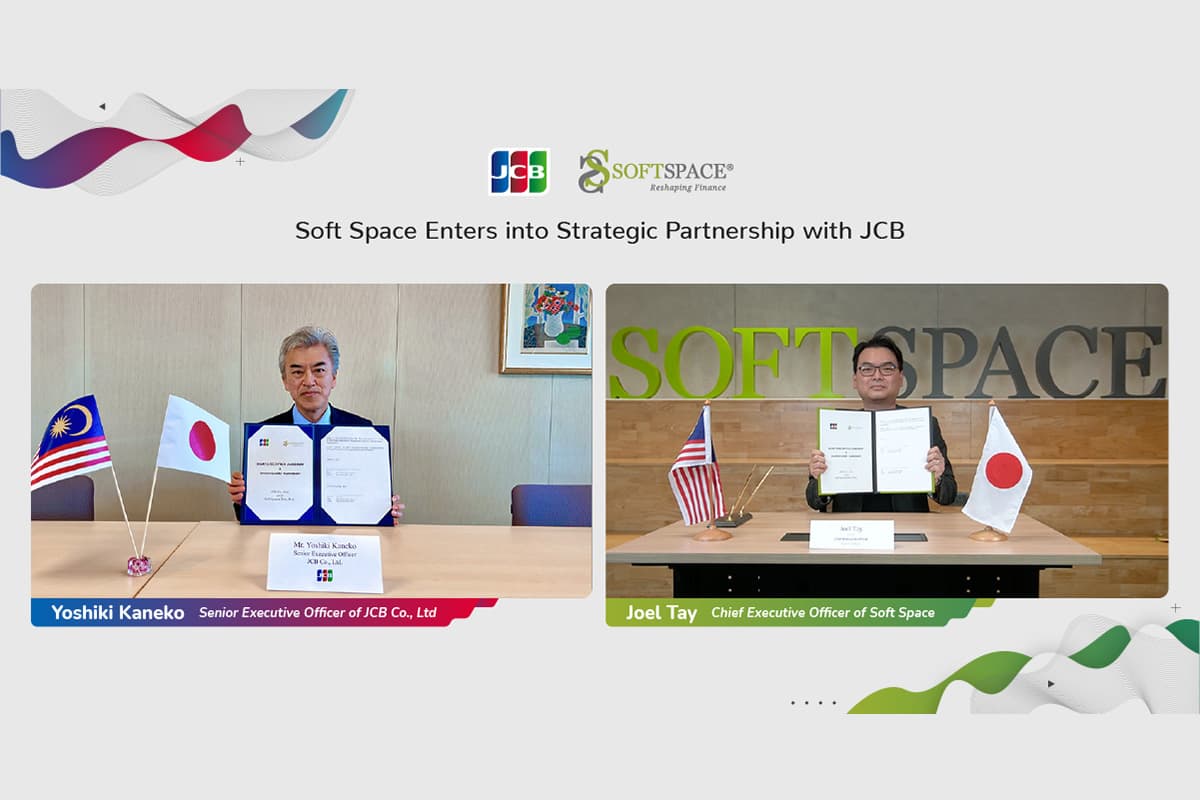

Japan’s sole international payment brand JCB Co has partnered with Malaysian fintech player Soft Space for a series of local and regional business collaborations.
The strategic partnership involves a combination of US$5 million (RM20.9 million) investment in Soft Space to offer Malaysians a wide range of services that can be used locally and internationally.
The Japanese credit card service provider will grant Soft Space to issue JCB cards to customers and acquire merchants in Malaysia.
Established in 1961, JCB is a pioneer in introducing credit card services and exclusive rewards.
Its proprietary card line-up include premium, affinity and corporate cards that provide a unique brand value to each customer from all over the world.

JCB Executive Vice President (ASEAN business development) Hiroyuki Katano said the collaboration was mooted with short, medium and long-term milestones in mind.
As for short-term actions, the tap-on mobile device provided by Soft Space would be used to link with JCB’s existing credit card businesses.
For the medium and long-term actions, JCB aims to provide new value and solutions to its customers by combining Soft Space’s technology with JCB’s business in the future.
“Despite low penetration rate of bank account ownership and credit card usage in Asean, the region has a high smartphone penetration rate which offers an opportunity to introduce new benefits smartphone-based marketing solutions.”
Moving forward, Katano said JCB will be utilising Soft Space’s solutions to offer more benefits to the existing customers and expand JCB’s business footprints.
“Additionally, Soft Space will be able to expand its market share by collaborating with JCB, so the two companies will be able to create a win-win relationship.”
JCB’s collaboration with Soft Space is in line with the group’s expansion throughout the Asean region.
Speaking about the significance of the move, Katano said the firm views Asean as a high-potential market with a growing population and economy.
“In terms of payment, the number of people with bank accounts and credit cards is still small, and there is room for growth as a business opportunity.
“The people of Asean have a positive view of Japan and believe that JCB, as a Japanese company, can provide value.”
Katano noted that following their venture in Malaysia, the group aims to expand its business in other countries such as Indonesia, Vietnam, Philippine and Thailand.
“They would like to promote marketing activities across ASEAN by combining Soft Space's fintech technology and JCB's network.
“In countries such as Vietnam, Indonesia, and Philippines, where cash is still the main source of payment, JCB hopes to contribute to a cashless society by working with Soft Space to make payment activities more convenient for consumers.”
According to Katano, JCB is still in the position of a challenger in the Asean market and it would continue to implement a plan-do-check-act cycle of making various hypotheses, experiments and verifying them.
“In addition to deepening our efforts with Soft Space, JCB would also like to focus on partnerships with other companies and start-ups.
“JCB will expand its current credit card business through collaboration with external parties, while simultaneously pursuing strategies to create new businesses in the medium to long term.”
JCB owns and operates one of the largest payment schemes in Japan supporting about 37 million merchants and 140 million card members across the world.
Soft Space, on the other hand, boasts an expansive range of product offerings that span white-label e-wallet solutions to its flagship Tap to Phone technology, which is the world's first SoftPOS solution to support secure PIN entry.
Find out more here